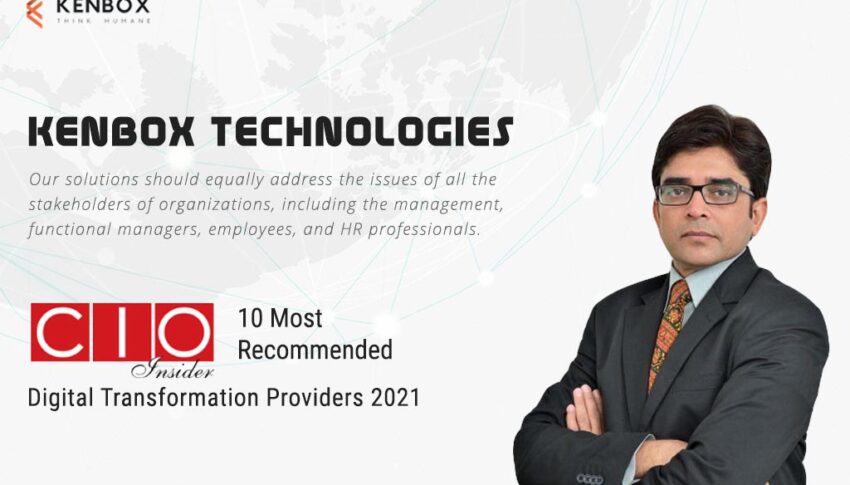by KenboxTech
Too early to assume of new norms bringing any permanent change in human behaviour
How do you visualize the new normal of work and workplace beyond covid?
RT Bringing change in human behaviour is not easy. It needs pressuring causes to effect a change. Fear is one of many causes to bring in change in human behaviour but extent of change is proportional to degree of fear & persistency. Higher the degree, greater are chances of permanent change. Old studies have shown it that even people, who swear to changes during critical illness, revert to their old behaviour, the moment they escape threat to their lives.Moreover, societal evolution is due to intense interaction of human kind. Organisations are part & parcel of human society. The moment we cut interactions among people, perhaps it may lead to ruinous outcome. Behaviour what is seen today may be out fear, compulsion and local government directions. Survival instinct is high on alert due to pandemic and perhaps reason of certain human behaviour display, today.
In this grim scenario, businesses are taking all possible steps to remain floated.Cost and that too fixed cost is always an area of concern for organisations. To reduce it, every possible thing is done now & even before and will continue to do so.The pandemic has given opportunity to reduce cost through available technological options and adopt them as norms which would not have been so easy during normal course of time. Consequently, virtual is appended to all those activities which can be performed remotely with the help of technology and can be cost saving measures. It is too early to assume that new norms will bring in any permanent change in human behaviour thereby in organisations or mere come out to be cost cutting measures. However, certain industries will see higher adoption of new virtual technological options due to their nature of business. Certainly, virtual behaviour may throw up serious challenges to organisations due to its very nature of being against human evolution theories.
Pandemic, for certain has fast paced adoption of new technological innovations that can avoid disease spread through physical contacts and help in continuing business activities. These new practices should not be seen as behavioural changes but mere adoption of technological advancements that are enabling businesses to reduce operational cost & continue business transactions through people in person or remotely. For example, attendance of people is required whether to do it physically or virtually. I don’t see much difference in business space once danger dangling on head today is drifted away.
What may be the stark differences between pre and post covid work and workplace?
RT From work place point of view, I could see two major changes to set in. One, attention to hygiene may become a new norm which India lacks in general. Second, prompt adoption of HRMS even by small and mid-size companies may see uptick in coming days.Work from home may be explored more by companies in at least IT sector. Core industry on the other hand will look for more congruent and comprehensive solutions for people related processes to reduce cost and ensure continuity of business in odd times like now.
Gradually companies will bounce back to normalcy of pre-covid times, that’s what I could see. Moreover, efforts may be made to look for practices which help them in affecting higher performance from employees using technological offerings.Overall, as emotional connect through personal contact is must for human creativity and transactions, physical connect cannot be done away with. It is the very basic of human beings.
Beyond covid, HR professionals will be responsible to create and nurture a work culture that drives mutual trust, empowerment, productivity and inclusion. Can technology help achieving this or HR will have to explore other innovative ways?
RT Human Resources as a function is taking a very definitive role in the growth of organisations. Undoubtedly, everyone across has accepted that it is people which make a difference to organisations; every other thing comes last. Current situation has highlighted it further. HR professionals have to grab this opportunity to scale up their working and ensure that their practices make companies stand up on their feet as quickly as possible. They have to be more exploratory and tuned to newer technological advancements.No doubt; technology will help HR in bringing desired changes to overall people practices. Millennial or for that matter even all other employees are hooked to modern day technical gadgets quite often. Action on move is the truth. How quickly, one gets a response within organisations makes a huge difference, today. This very fact should be channelized to affect performance and engagement. Moreover, HR professionals need to be quick in responding to changes and new required office practices. Engagement should be the priority before inculcating trust, inclusion and other aspect of a positive culture. At the same time, they have to devise ways & means to keep human touch intact.Culture is not made by one person or function. A work culture full of mutual trust, empowerment, productivity and inclusion should be the responsibility of the management & all managers in organisations. HR as being knowledge partner can play a pivotal role.



